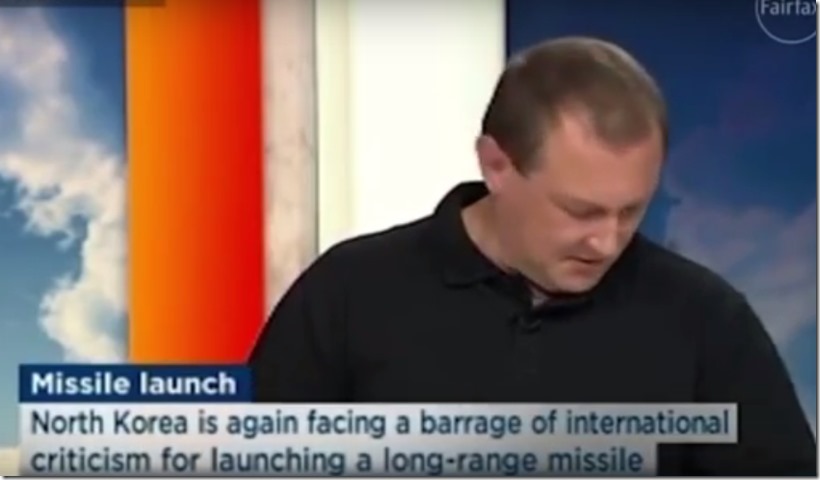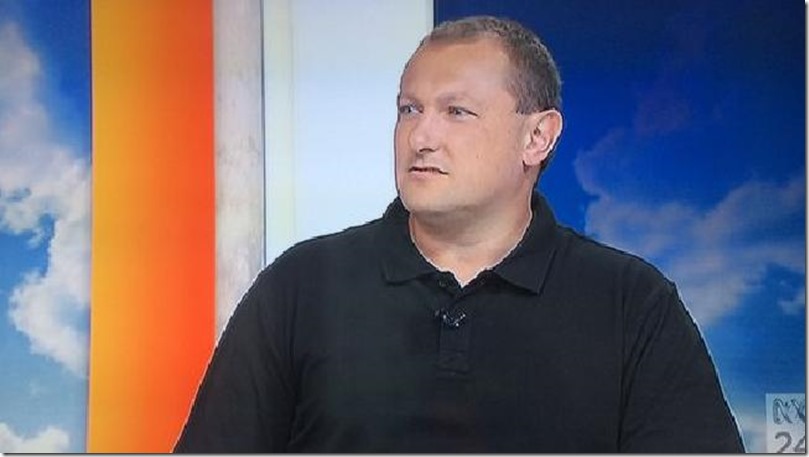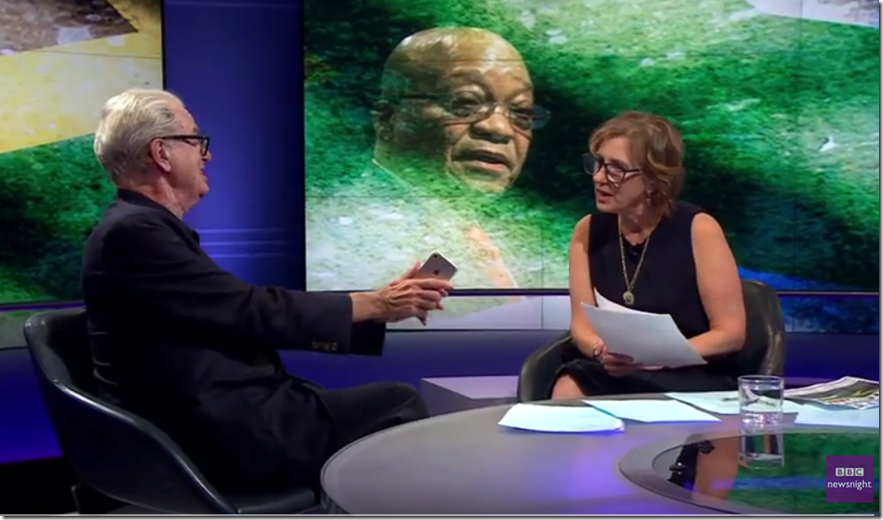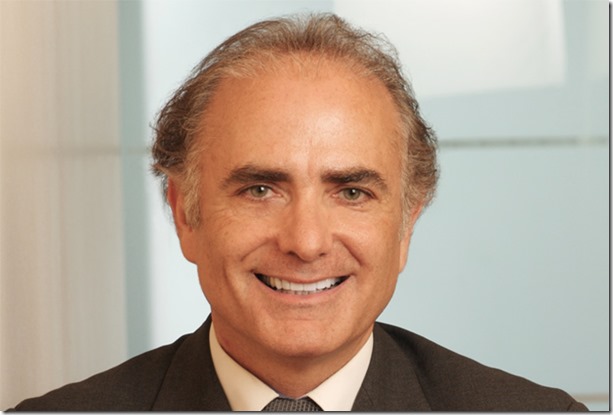What It Feels Like To Freeze On National Television
Shortly after launching this website in 2010, I started a feature called “The Worst Video Media Disaster of the Month.” I became somewhat known for that series, which attracted a fair bit of traffic, and I kept it going for several years.
Over the past couple of years, I quietly reduced, then killed that feature. I was growing increasingly uncomfortable with the notion of growing my brand by regularly highlighting—even enjoying—the worst moments of other people’s lives or careers.
I still write about media and speaking disasters occasionally. Public figures and elected officials who bully and treat others badly deserve scrutiny, and I don’t intend to stop calling out their bad behavior. But when the bad moments happen to people who were formerly anonymous—or at least not well known—I try to write with a more compassionate tone and offer productive advice about how that person might move on. Today’s post falls into that category.
Earlier this month, an Australian lecturer named Benjamin Habib of Melbourne’s Latrobe University appeared on live television to discuss North Korea’s recent rocket launch. He froze—and the anchors quickly killed the interview.
What makes this interview interesting is what happened afterward. Dr. Habib wrote a lengthy essay for his blog, in which he described the humiliating experience and his battle with mental illness which, he says, contributed to his on-air performance.
The full essay, describing the anxiety and sleeplessness that immediately preceded the interview, is worth reading in full. Here’s his description of the start of the interview:
As the…tech guys were counting in the live camera feed to the studio desk, I began to experience what could generally be described as a panic attack. I could feel my body overload with adrenaline as my entire physique heated up, my muscles deadened and my skin began to vibrate as if being shocked with a mild electric current.
Michael Rowland introduced me and then threw to me with his first question. I have no memory of his actual question, my mind all of the sudden swimming in a haze. As I realised that seconds were ticking away without me forming a coherent answer, the physical anxiety reactions intensified.
I babbled and stumbled, my carefully prepared comments slipping away from my conscious awareness. Michael and Virginia, seeing that I was struggling, asked prompting questions in an effort to change tack and help me out of the hole.
I very much appreciated their efforts to shepherd me through the interview, but it was to no avail. With every question they asked I struggled even more as my anxiety symptoms took complete command of my body and mind. Finally I gave in and said “I can’t do this,” and Michael and the editors quickly threw to the next story.
Habib called the moment the worst public embarrassment of his career.
“I was absolutely devastated. All I wanted to do was crawl into a hole away from human contact, but instead I boarded a train packed with morning peak hour commuters. After returning home I spent the remainder of the day shaken and upset, shunning any form of electronic media. Eventually my anxiety symptoms subsided enough that I managed an hour or two of disturbed sleep.”

Dr. Habib emerged from his metaphorical hole with a new commitment to talk about mental health and help others learn from his experience. And, to his credit and my delight, he hasn’t given up on appearing on television.
I’ve come to feel a responsibility as someone with a position of influence, who has experienced extreme anxiety and associated bouts of depression, to share my experiences and attempt to normalise mental health as an issue for the young people I work with.
….
I’m not going to do any more television interviews for a while (and I doubt I’ll be in great demand, given Monday’s performance) but I will eventually jump back on that horse, with some further media training and new anxiety management strategies in my tool kit.

Habib has clearly diagnosed his challenge accurately and, given his high level of self-awareness, I have every confidence he will be able to bounce back from this. But I do have a few ideas that might help him along his journey.
1. There’s no rule that says you have to go on television, at least right away. But in the meantime, I’d encourage you to continue developing your media interviewing skills through telephone and in-person print interviews. You can surely find a talented media trainer in Australia; my book, The Media Training Bible, is also a low-cost option available in the Amazon Australia Kindle store.
2. For some television interviews, you may be able to request a taped “sound bites” or “live to tape” interview format instead of a live one. In those formats, you could start over again if your anxiety took hold during an answer—and the producer would only show your good answers on the air. If you’re invited on another television program, you might forward them your article and request, for the reasons apparent in your article, that they consider offering you one of those formats.
3. Instead of high-profile live interviews, consider starting small. Ask your university’s media relations department to book you on live but lower-profile programs—perhaps the university has a small television station or there’s a small community interest satellite program. When the stakes are lower, you might be able to beat your anxiety and develop the muscle memory you’ll need for more visible broadcasts.
4. Finally, and I don’t say this to minimize your experience, but it wasn’t that bad. The public tends to punish people who are unsympathetic, hostile, irresponsible, or bullying. You were none of those things—and I suspect many viewers were thinking some version of “that could have easily happened to me.” Is it embarrassing? Yes. Will the public be on your side and rooting for you to succeed next time around? You bet.
Dr. Habib, I’ll end with the words you got so right in your article: “I have learned through hard experience that pure perfection is impossible and that it is OK to f**k up.”
Editor’s note: After writing this post, Dr. Habib appeared on a local radio station to describe his botched television appearance. He did well, and it’s worth a listen.
Don’t miss a thing! Click here to instantly join our mailing list and receive free media training and public speaking tips.



I had an experience in college that I think could help people like Dr. Habib who suffer from anxiety in general as well as those who simply dread speaking in public. When I was a sophomore in college, I took a public speaking class, which arguably was one of the best experiences of my life. I’ve never had trouble speaking before an audience, but it was my professor who had such a positive impact because of the way she approached my classmates as individuals and worked to help them deal with their specific challenges regarding public speaking.
One young lady confessed early on that she was taking the class because she was absolutely terrified of speaking before an audience and needed to work on that. So, when it came time to give our first speech, our professor told her that the goal was to just get through it, no matter how long it took or what she had to do.
When she got in front of us, she was visibly a wreck. I remember her having to stop several times and take minutes-long pauses to compose herself. All the while our professor and my classmates sat quietly and gave her the space she needed. It took her a while, but she got through it. If memory serves, it took her much longer than the allotted time we were given to make the speech. But that wasn’t important. When she finished, our professor literally threw her hands in the air, gave her a big smile and told her, “Bravo!” All of us in class applauded and congratulated her, as well. She still struggled with later speeches, but she became more comfortable.
Having said that, I’d recommend Dr. Habib practice in situations where the only goal is to finish. Those helping him should be strong supporters willing to let him stumble and wait patiently as he works through his anxiety. Then–they need to provide loads of positive feedback and encouragement at the end. Again, the goal for him should be to simply get through it–over and over–until his anxiety becomes something easier to control. He may never become as polished as some interviewees, but he will gradually learn to control his anxiety when the interview is real.
Just checking in. I followed your blog in its infancy, and for some reason I got out of the habit. I checked in a year or so ago, and got the notion that you were no longer the principal author any longer, so I haven’t checked back since. I saw an alert in my” promotional” folder, and decided to catch up a little.
This is the type of post I remember getting excited about. You are a good person, and it shows, and that makes reading your blog fun. Thanks for reminding us to have respect for people, even those who we have only seen at their worst. Even the “I’m eating my cookie” guy.
Bjorn,
Thank you very much for your kind comments, and welcome back to the blog!
We occasionally have guest bloggers, but I remain the principal author and edit everything that appears on the site. I hope you find the content useful, and appreciate you giving the blog another look.
All best,
Brad
Several years ago I attended a small event (maybe 100 people) sponsored by one of the nation’s top automakers to promote their sponsorship of an important documentary. The middle-management speaker started ok, then seemed to lose his place in his notes. He didn’t utter another word – just stood there staring at the increasingly uncomfortable audience for several minutes until the PR person went to the podium and shuffled through his notes. He could/should have known his material well enough to keep talking, or at least apologize for losing his place and ask the audience’s indulgence until he found it.